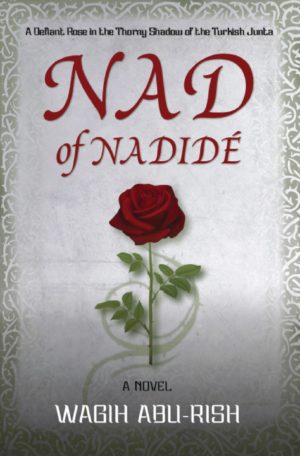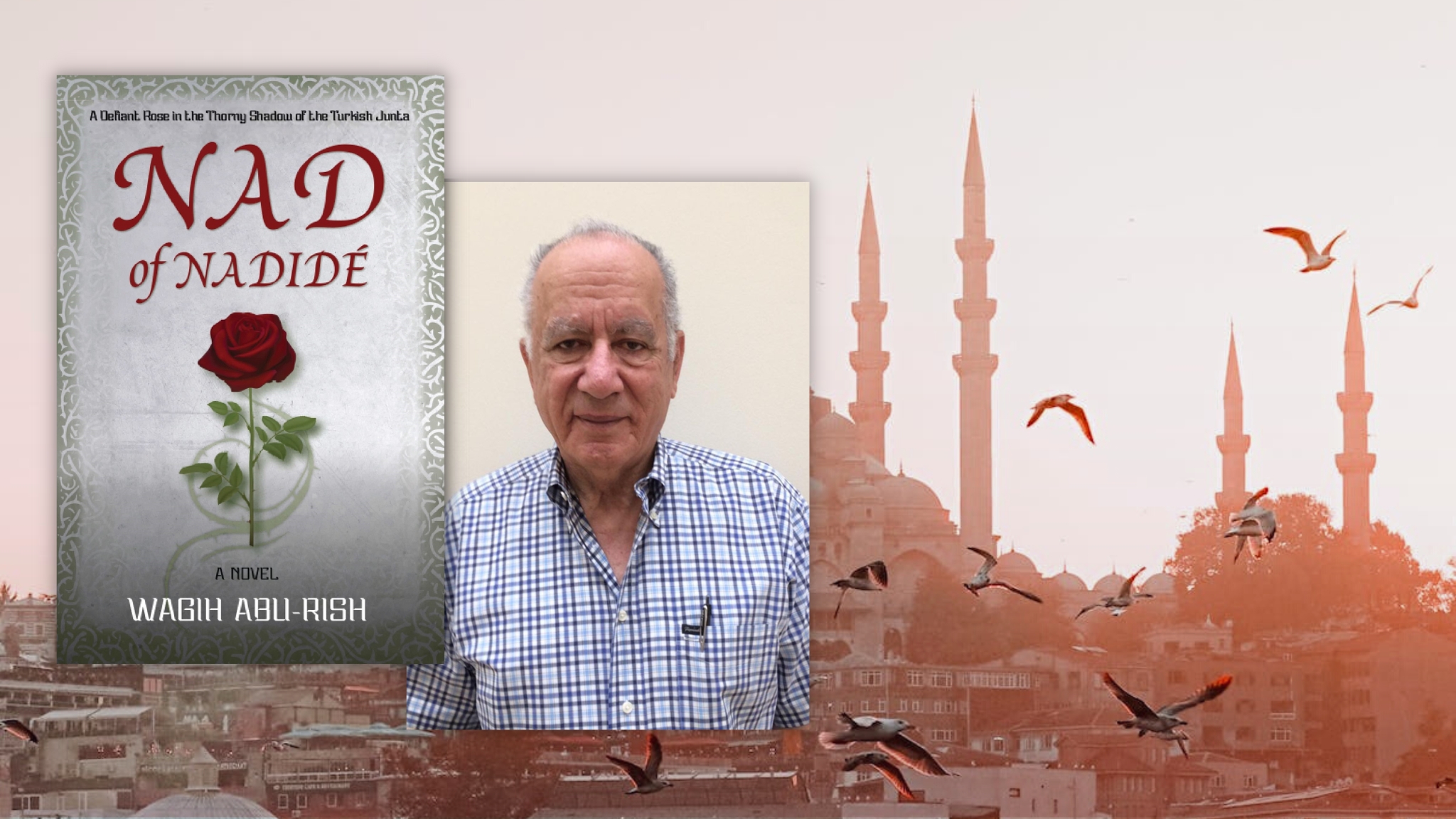Nad of Nadidé
A Palestinian-American author and activist has written a new novel that is being compared favorably to Romeo and Juliet.
Nad Of Nadidé by Wagih Abu-Rish is a story about love in a maze of social, religious and political obstacles. After his love affair with the stunning Lebanese Dania takes a turn for the worse, Fareed Shaheen transfers to university in Istanbul, where he meets the lovely Nad. He falls in love once again, but Nad’s father, General Ali Hikmet, is an intimidating presence who has no intention of letting his daughter marry a man of mixed origin. Will the lovers prevail?
In this recent interview, the author talks about his work and some of the important themes it explores within.
Q: Where did you get the idea for this book?
A: When I was a high school student at the preparatory section of the American University of Beirut, Lebanon, I was coached in basketball by students from the University itself. Many used to disappear from the scene to transfer to Istanbul, mainly because of a disappointing love affair.
Q: Nad of Nadidé explores the intricacies of love and relationships, friendship, individual angst, courage, determination, free will, resilience, personal dreams, sacrifice and faith. That’s quite a checklist. Tell us a bit about the storyline and how those emotions evolve.
A: It starts with a love affair which falls apart due to religious differences and social misbehavior by one of the lovers. It continues with another love affair which has similar challenges, but this time from an influential and arrogant family member. It continues through a maze of political difficulties and life-threatening experiences, through which the lovers had to navigate with all kinds of dangers.
Q: What are some of the key “big picture” themes that you explore?
A: That love is universal, difficult but worth fighting for, even against all odds and that religion and its influence on people is different and subject to the biases of such individuals.
Q: Are the characters based on or inspired by any of your real-life experiences?
A: Only as an observer and not the actual practitioner of such experiences.
Q: One reviewer compared your story to Shakespeare’s Romeo and Juliet. What was your reaction to that?
A: Totally unexpected and mostly appreciative. I think my mother would have agreed with the reviewer. I don’t know who else!
Q: What was the most difficult part of the book to write?
A: It was trying to connect the different currents in the novel, between the political, religious, social and ethnic.
Q: What do you hope readers take away from this book?
A: That while love is universal, people of different races, religions and social strata react rightly or wrongly in the same varied and diverse ways, regardless of their differences.
Q: What is your next project?
A: My next book is being edited. It is about a Palestinian male foreign student who curiously goes to attend a right-wing political rally. There, he is physically raped. The novel deals with the aftermath of the rape within the context of a dramatic love story.
 Wagih Abu-Rish is a Palestinian-American author and activist. He spent much of his career as a businessman, specializing in acquisitions. During a long and varied professional career, he was a foreign journalist in Beirut and Lebanon, and an ad executive on Madison Avenue in New York. Mr. Abu-Rish earned bachelor’s and master’s degrees in journalism from the University of Houston and the University of Oregon.
Wagih Abu-Rish is a Palestinian-American author and activist. He spent much of his career as a businessman, specializing in acquisitions. During a long and varied professional career, he was a foreign journalist in Beirut and Lebanon, and an ad executive on Madison Avenue in New York. Mr. Abu-Rish earned bachelor’s and master’s degrees in journalism from the University of Houston and the University of Oregon.
He has been active in promoting progressive causes such as democratic practices and equal rights. Among those causes, he feels strongly about the need for the liberation of women in the Middle East, which he considers to be the most overlooked and abridged human right of all.
It is his hope that this book highlights the themes he believes in. The most salient of such themes is the fact that most adherents are ignorant of the essence of their own religions. This applies equally to the adherents of Islam and to all other religions.
His second and mostly implied theme is the difficulty people have in humanizing others, whether that means another gender, ethnicity or nationality. Such humanization is the starting point for resolving difficulties and conflicts between competing individuals, parties and countries.





